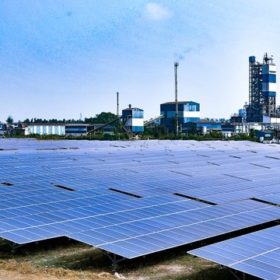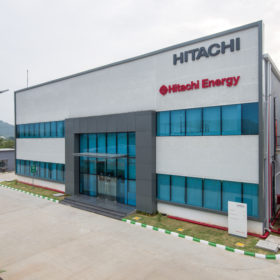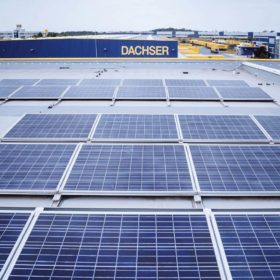SafEarth raises INR 3.5 crore for its C&I solar online platform
The online solutions provider for commercial and industrial solar has raised INR 3.5 crore to fuel its product development initiatives and expand into new industrial belts across the country.
Solarizing the telecom tower sites in India
Delta Electronics India is a leading power and energy management solutions provider for the telecommunications industry. Rajesh Kaushal, vice president at Delta Electronics India, speaks to pv magazine about solarization of telecom tower sites in India, Delta’s role in driving this transition with its energy management solutions, challenges, and the way forward.
NLC seeks QCA services for 1.4 GW of solar and wind plants
NLC India Ltd is looking to engage a qualified coordinating agency (QCA) for its 1.4 GW of solar and wind power plants at various places in Tamil Nadu. The QCA will maintain the transmission of plant-level data and other required data to the state load dispatch center (SLDC), besides providing other services.
Govt panel outlines electricity market roadmap
A power ministry-constituted panel on electricity market development in India has proposed a market-based mechanism for secondary reserves, power purchase agreements (PPAs) of 12-15 years duration, and 5-minute metering, scheduling, dispatch, and settlement.
Schneider Electric launches construction of a new factory in India
Schneider Electric is investing around INR 140 crore ($17 million) for setting up a new facility in Kolkata, West Bengal. The new facility will grow its vacuum interrupter production capacity and strengthen the power systems vertical.
PTC India partners Belgium’s N-Side on predictive solution for power market
PTC India Ltd will work with N-Side, Belgium, to develop a predictive solution for the Indian power markets.
Hitachi Energy opens advanced power system factory in Chennai
The HVDC and power quality product factory will cater to the rising number of high-voltage transmission projects in India and export to support global HVDC installations.
From diesel to DC
For a long while, it looked as if hydrogen fuel cells would be the technology of choice for emissions-free road transport. However, truck manufacturers and freight forwarders recently turned their attention to battery-electric vehicles. This will require special charging technology and PV looks set to play an important role.
Tata Power to deploy AI-enabled smart energy management program in Mumbai
Tata Power will deploy US-based AutoGrid’s software application for electricity load management in Mumbai. It aims to engage 55,000 residential consumers and 6,000 large C&I customers to achieve 75 MW of peak capacity reduction within the first six months. It also plans to scale up the capacity reduction to 200 MW by the summer of 2025.
Union Budget 2023: Mainstreaming flexible and resilient grids
While the current policy regime supports the adoption of flexible resources like batteries, grid flexibility and resilience require more focus and a range of calibrated efforts, including due acknowledgment as a sector priority and robust planning at the central and state level. The upcoming union budget provides an opportunity for the government to develop flexible and resilient grids.












